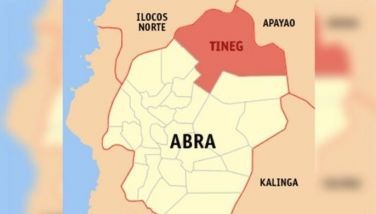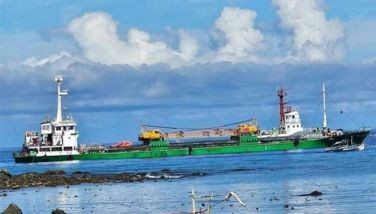Japan quake, radioactive leak spur concerns about reactor safety
TOKYO (AP) - The fire and leak of radioactive water from the world's largest nuclear power plant in an earthquake in Japan have prompted the government to reassess safety standards at the temblor-prone country's atomic reactors.
The operators of the Kashiwazaki Kariwa plant, the world's biggest in terms of power output capacity, were quick to argue that the accidents in Monday's killer quake posed no threat to the environment.
But the mishaps illustrated the weak points in Japan's nuclear plants, an accident-plagued network that provides a third of the country's electricity. The government had already been working on raising quake resistance standards at Japan's 55 reactors.
On Tuesday, officials were investigating another possible leak: plant operator Tokyo Electric Power Co. said the quake had tipped over barrels of low-level radioactive waste at the same plant, but the company could not immediately say whether any material had spilled.
Only hours after the water leak was announced late Monday by TEPCO, the trade minister ordered the company not to restart the plant without a thorough review of safety measures, and called for similar measures at other reactors.
"It will not resume operations until we ascertain its earthquake-proof structure," Economy, Trade and Industry Minister Akira Amari said Tuesday, adding he had ordered other operators to provide emergency response plans.
The problems at the plant in Kashiwazaki on Monday at first appeared minor.
The 6.8-magnitude quake ripped into the coastal region in midmorning Monday, triggering the plant's automatic shutdown system. A small fire broke out at an electrical transformer at a reactor, but the blaze had been put out by early afternoon. TEPCO said there was no damage to the reactor.
But some 12 hours after the quake, the company publicly announced that some 1,200 liters of water containing radioactive material had leaked from a reactor building in the quake and was flushed into the sea.
TEPCO officials said the amount of radioactivity was far below Japanese safety standards and would have no environmental impact. But the leak _ and the time it took for the company to announce it _ raised alarm bells.
The leak was discovered at about noon on Monday, but TEPCO said it took till 6:20 p.m. to confirm it contained radioactivity. The company notified the government at 7:10 p.m., and announced it to the public at 9:45 p.m.
"Their report was late, and they were also behind in putting out the fire," said State Minister Sanae Takaichi, whose portfolio includes science and technology. "It is important that they thoroughly investigate the cause."
Currently, government standards require plants to be built to withstand magnitude-6.5 quakes, but a review of that was launched last September with the aim of increasing resistance up to a 6.9 quake, said Masanori Hamada, professor on earthquake engineering at Tokyo's Waseda University.
Hamada said that in light of the Niigata quake, the government should set the bar higher.
"With close examination of data on the latest tremor, we will have to increase the quake-resistance standards for nuclear power plants to meet the new situation," Hamada said, adding that the fire and leak were the result of "lax management."
Japan's record in nuclear safety is not a happy one.
The country, spurred by lack of domestic fossil fuels and concerns over global warming, is working on increasing its reliance on nuclear power to 40 percent of its electricity supply by 2010.
But the industry has been dogged by accidents and cover-up scandals, and public trust runs low.
In August 2004, five workers at the Mihama Nuclear Power Plant in western Japan were killed and six others were injured after a corroded pipe ruptured and sprayed plant workers with boiling water and steam. The accident was the nation's worst at a nuclear facility.
In 1999, an accident at a nuclear reprocessing plant north of Tokyo killed two workers and exposed hundreds to radioactivity.
- Latest
- Trending



























